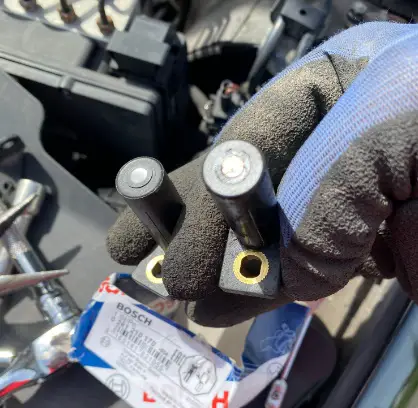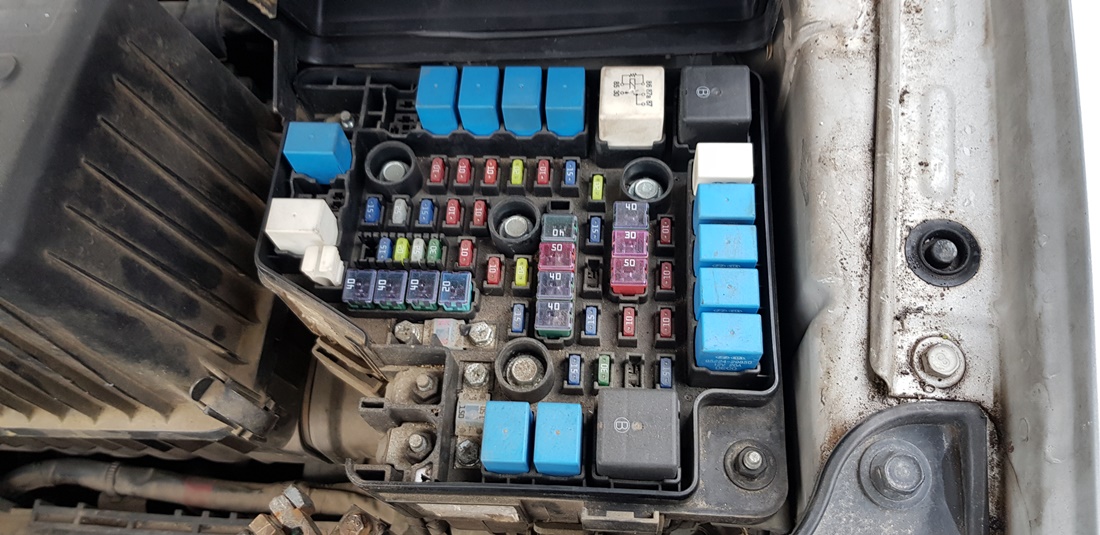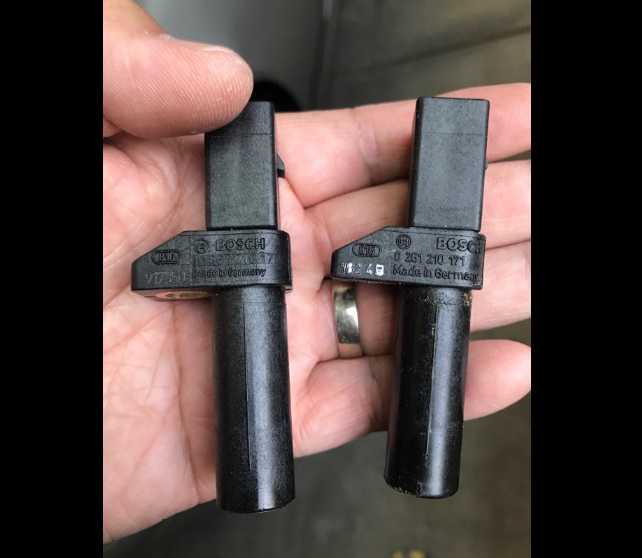It’s a frustrating problem: your car keeps burning out alternators. You’ve probably taken it to a mechanic, and they’ve told you that they don’t know what’s wrong.
Don’t worry – we’re here to help! In this blog post, we will discuss eight common reasons why your car might be burning out alternators. Keep reading for more information!
- Key Takeaway
- My Car Keeps Burning Out Alternators (8 Reasons Why This Happens)
- 1. Oil dripping into the alternator
- 2. Improper installation of the alternator
- 3. Modifications that overload the alternator
- 4. High resistance in the charging output circuit between the alternator and battery
- 5. Heat from the exhaust gets onto the alternator
- 6. Poor quality alternator
- 7. Corroded main terminal connections at the alternator and battery
- 8. Bad battery
Key Takeaway
- Your car may keep burning out alternators due to reasons such as a faulty battery, incorrect installation, oil spillage, overload due to additional accessories, high amp load or bad connection, and excessive use leading to overheating.
- An alternator is a component in a vehicle’s engine that converts mechanical energy into electrical energy, which is used to power the electrical systems and recharge the battery while the engine is running.
- To check if an alternator is bad, you can use a multimeter to measure the voltage output while the car is running – if it’s below 13 volts or above 15 volts, the alternator might be faulty.
- To prevent alternator failure, regularly check for signs of wear and tear, keep your battery in good condition, avoid using excessive electronic accessories, and ensure the alternator belt is properly adjusted and not slipping.
What Is an Alternator?
An alternator is a key component of a vehicle’s electrical system that generates electricity to power all the car’s electrical systems and charge the battery while the engine is running.
The alternator is driven by the engine’s crankshaft, usually via a belt. As the crankshaft turns, it spins the alternator, which then produces electricity.
This electricity powers everything from your headlights and windshield wipers to your radio and air conditioning system. Importantly, it also charges your car’s battery, ensuring that the battery has enough power to start your vehicle the next time you turn the key.
Inside the alternator is a rotor that spins inside a stator. As the rotor spins, it creates a magnetic field that induces an electrical current in the stator. This alternating current (AC) is then converted into direct current (DC) that your car’s electrical system can use.
My Car Keeps Burning Out Alternators (8 Reasons Why This Happens)

Alternators have the purpose of recharging the car battery. Without alternators, the car would only run as long as the battery can keep it alive before being completely drained.
Having such an important role, it is essential that your vehicle has a fully operating alternator. But, some cars keep burning out alternators.
Here are 8 reasons why your car keeps burning out alternators:
1. Oil dripping into the alternator

When engine oil starts dripping into the alternator, it will break down the insulation of the alternator’s winding and cause a short circuit. This can lead to all sorts of problems, but in some cases, it can cause the alternator to catch on fire.
The engine oil can get into the alternator in a few ways. One way is if the car’s engine is overfilled with oil.
When this happens, some of the oil can seep into the alternator through the seal between the engine and the alternator. Another way oil can get into the alternator is if there’s a leak in one of the hoses that carries oil to or from the engine.
A third way is if there’s a leak in the gasket that seals the connection between the engine block and the cylinder head. Any of these leaks can allow oil to enter the alternator, where it can damage the bearings or other parts.
The engine oil dripping on the alternator will also attract dust. Apart from oil, which is already bad enough, the alternator will have dust buildup. When dust mixes with oil, it will become like gunk and will block the normal operation of the alternator.
The alternator is saturated with oil, and probably the bearings are going out, or it’s catching on fire on the inside, from all the oil and dust buildup. You need to replace the alternator and fix any oil leak that’s causing the oil to leak onto the alternator.
2. Improper installation of the alternator

When a car’s engine is running, the alternator charges the battery and powers the car’s electrical systems. If the alternator fails, the battery will eventually run out of power, causing the engine to shut down. One reason that alternators keep burning out is if they are installed improperly.
If the alternator is not properly secured, it can become loose and potentially damage the other parts of the car’s electrical system.
Most mechanics will test the alternator before they install it to make sure it is in good working condition. However, if a mechanic does not properly secure the alternator, it can eventually become loose and fail.
Also, while installing the alternator, sometimes the person who is doing the installation can mix up the wiring and connect it wrong.
There is also a protective boot that goes over the power cables and prevents any unintentional grounding or arching. If this boot isn’t placed on, water can get in and burn the alternator immediately.
3. Modifications that overload the alternator

Modifications that overload the alternator is one of the leading causes why a car might keep burning out the alternator. When you overload the alternator, it puts strain on the electrical system and can cause a number of problems. It can overheat and fail, or it can simply wear out over time. Either way, it’s important to be aware of the potential risks before you make any modifications to your vehicle.
One modification that can overload the alternator is adding a powerful stereo system. If you have a powerful car stereo, it can draw a lot of power from the battery and cause the alternator to work harder. This can eventually lead to the alternator burning out.
Another modification that can overload the alternator is installing aftermarket lights. Aftermarket lights, such as HID headlights, can draw a lot of power and put a strain on the alternator.
Other modifications, such as installing a nitrous oxide system or an electric turbocharger, can also put a strain on the alternator and cause it to fail prematurely.
If you’re not sure whether a particular modification will overload the alternator, talk to a professional or consult your vehicle’s owner’s manual. Otherwise, you could end up causing serious damage to your vehicle – and yourself.
4. High resistance in the charging output circuit between the alternator and battery

A car’s alternator is one of the most important components in the engine, as it is responsible for charging the battery and powering the electrical system. When the alternator fails, it can cause a number of problems, including a dead battery, dim headlights, and electrical problems.
One of the most common causes of alternator failure (burning out) is high resistance in the charging output circuit. This can be caused by a number of things, including a loose connection, damaged wiring, or a failing diode.
The most common reason for high resistance in the charging output circuit is a poor connection between the alternator and battery. The resistance can be caused by corrosion, dirt, or incorrect terminal tightness.
Clean all of the connections between the alternator and battery, including the battery terminals and cable clamps. Inspect the condition of the battery cables and, if necessary, replace them. Make sure that all of the connections are tight. If you still have high resistance after cleaning and tightening the connections, then you may need to replace the alternator.
5. Heat from the exhaust gets onto the alternator

A car’s alternator is responsible for keeping the battery charged and powering the electrical components while the engine is running. However, the alternator can fail for a variety of reasons.
One common reason why the alternator keeps burning out is heat damage from the exhaust system. The exhaust manifold and catalytic converter can get very hot, and if they are located close to the alternator, this heat can damage the alternator’s electrical components.
If you changed the exhaust system and the new exhaust system is running close to the alternator, the heat can easily damage the alternator and cause it to burn out.
Over time, this heat damage can lead to premature alternator failure. In some cases, it may be possible to prevent this type of damage by installing a heat shield between the exhaust and the alternator. However, if the alternator has already been damaged by heat, it will need to be replaced.
6. Poor quality alternator

If your alternator keeps burning out, it could be because you’re using a poor-quality alternator. Alternators are vital components in any car, and they need to be able to withstand a lot of wear and tear. Unfortunately, some companies cut corners when manufacturing alternators, and this can lead to premature failure.
If you’re using a poor-quality alternator, it’s likely that it will overheat and eventually burn out. To avoid this problem, make sure to buy an alternator from a reputable manufacturer. With a quality alternator, you’ll be able to keep your car running smoothly for many years to come.
Also, your car may be burning out alternators if you are using refurbished alternators. When an alternator burns out, it’s usually because the brushes are worn down. The brushes are what conduct electricity to the spinning rotor.
When they get too worn, they can’t conduct electricity anymore and the alternator burns out. While you may be able to save money by buying a refurbished alternator, it’s not worth it if it keeps burning out.
7. Corroded main terminal connections at the alternator and battery
One common reason why alternators keep burning out is corroded main terminal connections at the alternator and battery. Over time, the acidic fumes from the battery can eat away at the alternator’s terminals, causing a poor connection. This can cause all sorts of problems, from the alternator not charging properly to an electrical short that fries the alternator.
In either case, it’s important to clean the terminals and make sure they’re making a good connection. You can do this with a wire brush or by using an abrasive cleaner. Once the terminals are clean, you should apply a corrosion-resistant coating to help prevent future problems.
8. Bad battery

If your alternator keeps burning out, it could be due to a faulty battery. A battery that is not capable of holding a charge can cause the alternator to work harder, which in turn can lead to premature failure.
The alternator keeps burning out when it is charging a deeply discharged battery. When you have a deeply discharged battery, it means that the cells in the battery are damaged and cannot hold a charge. When you try to charge a deeply discharged battery, the alternator has to work harder to charge the battery, and this can cause the alternator to overheat and eventually burn out.
If your battery is completely drained, use an external charger to charge it. This way, you are relieving your alternator from charging a completely drained battery. If you do not have an external charger, use jump cables and let them stay for about thirty minutes. They will help your alternator with the charging.
How Can You Check if an Alternator Is Bad
You can check if an alternator is bad by observing for signs of electrical issues, performing a voltage test using a multimeter, or noticing if your vehicle stalls or dies when the battery cable is removed while the engine is running.
Signs of Electrical Issues
A faulty alternator often manifests itself through electrical problems. These can include dimming or flickering headlights, especially when you’re using multiple electrical systems at once, such as the heater, wipers, and radio. Other signs can be difficulty starting the car, a dead battery, or the illumination of the battery warning light on your dashboard.
Voltage Test Using a Multimeter
Performing a voltage test using a multimeter is another reliable way to check the condition of your alternator. To do this, set your multimeter to DCV (DC Volts) above 15. Ensure that your alternator’s positive and negative terminals are clean before you begin.
Place the multimeter’s positive lead on the alternator’s positive terminal and the negative lead on its negative terminal. If the reading is around 14 volts when the engine is running, your alternator is in good condition. If the reading is significantly lower, it indicates a problem with your alternator.
Vehicle Stalls or Dies When Battery Cable Is Removed
An old-school method to check the alternator is to remove the negative cable from the battery while the engine is running. If the vehicle stalls or dies, it indicates that the alternator isn’t generating enough electricity to keep the engine running. However, this method isn’t recommended nowadays as it can potentially damage sensitive electronic components in your vehicle.
Warning Light on Dashboard
Your car’s dashboard has a warning light, usually shaped like a battery, which illuminates if there’s an issue with the charging system. If this light comes on while you’re driving, it’s a clear sign that your alternator might be failing.
How To Prevent Alternator Failure
Preventing alternator failure primarily involves regular inspections, maintenance, proper battery management, and avoiding excessive use of electrical accessories.
Regular Inspections and Maintenance
Regular inspections and maintenance are pivotal in preventing alternator failure. This includes checking the condition of the battery, cables, belts, and other components connected to the alternator. Regular car maintenance allows for early detection of potential issues, which can be addressed before they result in alternator failure.
Proper Battery Management
Managing your car battery correctly is another crucial aspect of preventing alternator problems. This includes ensuring the battery is always charged appropriately and not allowing it to completely drain. A well-maintained battery reduces the stress on the alternator, hence prolonging its life.
Avoid Excessive Electrical Accessories
Excessive use of electrical accessories can overwork the alternator, leading to premature failure. Therefore, it’s advisable to limit the use of such accessories, especially when the engine isn’t running, to avoid draining the battery and overstraining the alternator.
Keep the Alternator Clean and Dry
Dust, dirt, and moisture can negatively affect the alternator’s performance. Therefore, keeping the alternator clean and dry is essential. Any leaks that could result in the ingress of technical fluids into the alternator should be promptly addressed.
Diagnose Charging System Regularly
Regular assessment of the charging system can help identify potential alternator issues early. This involves checking the battery state of charge and troubleshooting any alternator issues for optimal performance says HVAC Mechanic.
FAQs
Q: Can a bad battery cause the alternator to fail?
A: Yes, a bad battery can put extra strain on the alternator and potentially lead to its failure. If the battery is not holding a charge or is constantly causing electrical issues, it is recommended to have it checked and replaced if necessary.
Q: How long does an alternator typically last?
A: On average, an alternator can last anywhere from 80,000 to 150,000 miles or around 7 to 10 years. However, this can vary depending on the make and model of your car and your driving habits.
Q: Can I replace the alternator myself?
A: While it is possible to replace the alternator yourself, it is a complex task that requires knowledge of automotive systems and electrical connections. It is recommended to consult a professional mechanic to ensure the alternator is properly installed.
Q: Can a faulty alternator affect other electrical components in the car?
A: Yes, a faulty alternator can affect other electrical components in the car. It can cause dim headlights, flickering dashboard lights, malfunctioning power windows, and issues with the audio system.
Q: How much does it cost to replace an alternator?
A: The cost of replacing an alternator can vary depending on the make and model of your car and where you get it replaced. On average, it can cost between $300 and $700, including parts and labor.
Q: Is it worth repairing the alternator or should I replace it?
A: In most cases, it is more cost-effective to replace a faulty alternator rather than repairing it. Repairing an alternator can be labor-intensive and may not guarantee the longevity of the component.
Conclusion and final thoughts
In conclusion, if your car keeps burning out alternators, it is important to address the root cause of the issue rather than consistently replacing the part.
Regular maintenance and proper usage of your vehicle can help prevent this recurring problem.
In addition, consulting a professional mechanic can provide valuable insight and assistance in diagnosing and resolving any underlying issues with your car’s electrical system.




